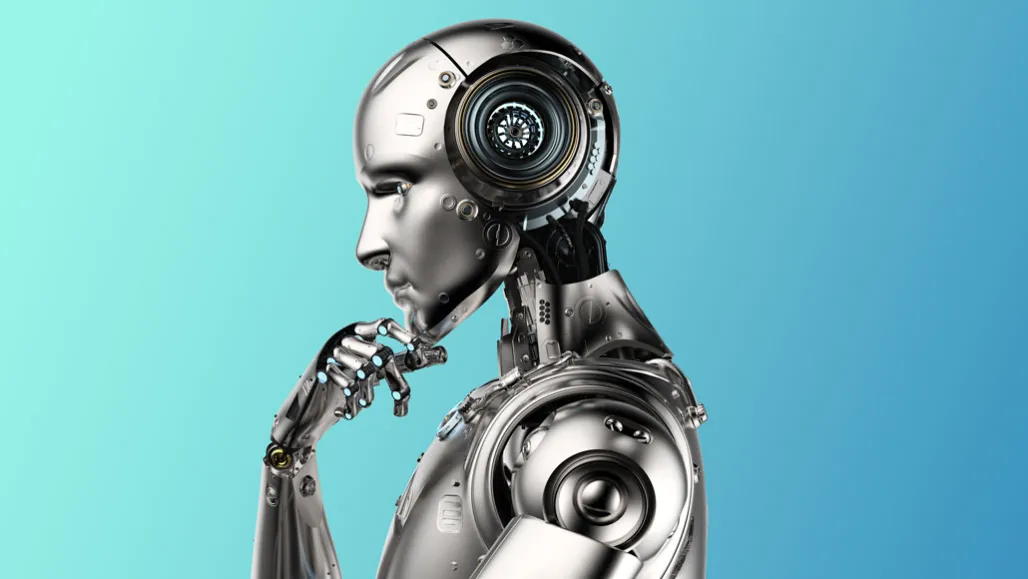Google AI vs OpenAI vs Meta AI vs Apple AI vs Samsung AI vs Microsoft AI vs Amazon AI: Who Will Lead the AI Race in 2025?
Jan 13, 2025
Read: AI for Beginners: A Simple Guide to Understanding Artificial Intelligence
Read: Must-Know AI and Programming Abbreviations for Kids and Teens in Tech
Read: The Ultimate Guide to Using ChatGPT the Right Way in 2025: A Teen's Guide to Getting the Most Out of AI
AI is everywhere, and by 2025, it's going to be even more advanced and integrated into our daily lives. But with Google, OpenAI, Meta, Apple, Samsung, Microsoft, and Amazon all vying for the top spot, who will come out on top in the AI race? Let’s dive into what each company has planned for 2025 and how they’re shaping the future of artificial intelligence.
1. Google AI: Dominating with Deep Learning and Search
2025 Plan: Google’s AI strategy in 2025 revolves around deepening its integration of AI into every aspect of daily life. Whether it’s through Google Assistant, Google Search, or AI-powered healthcare innovations, Google is betting on AI that improves productivity, accessibility, and personalization.
Key Developments:
Gemini AI: Google’s next-gen AI, Gemini, is expected to make huge leaps in understanding and generating natural language. By 2025, it will likely be the backbone of Google Search and Google Workspace, delivering even more intelligent and personalized results.
AI-Powered Search: Google will continue refining its AI-based search engine. Imagine asking Google, "How do I improve my essay on AI?" and it instantly gives you detailed, actionable advice. 🤖
Healthcare and AI Ethics: Google’s DeepMind will likely be a major player in healthcare by 2025, diagnosing conditions earlier and developing new treatments using AI. AI ethics will also be a huge focus to ensure responsible AI use in healthcare, education, and beyond.
The Verdict for 2025:
Google is doubling down on making AI seamless in everything from search to work productivity and even healthcare, making it the go-to company for AI in everyday life. 🌐💡
2. OpenAI: Leading the Charge with Generative AI
2025 Plan: By 2025, OpenAI aims to revolutionize creativity and productivity with its advanced generative AI models. OpenAI will push the boundaries of what its language models can do and also expand into more industries, including gaming, education, and art.
Key Developments:
GPT-5: OpenAI’s GPT-5 will likely be the next level of its groundbreaking language models. By 2025, GPT-5 will likely be more capable of handling complex multi-turn conversations, advanced reasoning, and creative problem-solving.
AI for Content Creation: OpenAI’s AI tools will help creators make YouTube videos, music, artwork, and even interactive stories faster and with greater ease. Whether you're a student looking for homework help or a gamer designing your own virtual world, OpenAI's models will be everywhere. 🎮🎨
AI for Coding: Codex (OpenAI’s code-writing assistant) will likely be a critical tool for developers in 2025, making it easier to code by writing out entire programs or debugging code in real-time.
The Verdict for 2025:
OpenAI is set to lead the charge in creative and generative AI, becoming the go-to tool for artists, students, developers, and anyone looking to unlock new forms of creativity and productivity. 🎉
3. Meta AI: Building the Metaverse with AI
2025 Plan: Meta’s AI strategy is all about creating smarter virtual worlds and immersive experiences in the Metaverse. By 2025, Meta will be focusing heavily on AI-powered avatars, AR/VR technology, and social media that’s more interactive and intuitive.
Key Developments:
Metaverse AI: Meta’s AI will power hyper-realistic avatars that adapt to conversations and environments in the Metaverse. These avatars will not only look real, but they’ll talk, move, and react like humans. Expect to see a lot of personalized AI experiences in virtual spaces. 🕶️
AI for Social Media: Expect to see more AI-driven tools that automatically enhance content and make recommendations based on what you truly enjoy. Imagine having an AI-powered Instagram that knows exactly what filters, captions, and posts will make you go viral. 📸
LLaMA AI: Meta’s LLaMA language models will continue to evolve, providing even better natural language processing for creating text-based content, solving tasks, and even answering questions more contextually.
The Verdict for 2025:
Meta is betting big on the future of the Metaverse, and its AI will make virtual worlds more realistic, immersive, and interactive. Meta is where the magic will happen if you’re into VR, AR, and next-gen social media. 🌐💥
4. Apple AI: Privacy-Focused Innovation for Personal Devices
2025 Plan: Apple’s AI game in 2025 will be all about privacy and personalization. With the focus on secure, local AI processing, Apple’s AI will likely continue to make its devices more intelligent, all while keeping your data safe.
Key Developments:
Augmented Reality (AR): Apple will expand ARKit for more immersive AR experiences across iPhones and iPads. Expect AI-driven interactions that adapt to your surroundings, transforming how you shop, work, and play. 🌐🕶️
Siri 2.0: Siri will become more conversational and capable of handling multi-step commands with improved contextual understanding, offering smarter assistance across all Apple devices. 🗣️📱
On-Device AI: Apple’s AI will focus on privacy, processing data locally to keep your information secure. Expect smarter photo editing, location-based reminders, and customized notifications. 🔒
AI in Health: Expect advanced health tracking with AI in Apple devices, offering personalized fitness and wellness insights, including predictive health analytics.
The Verdict for 2025:
Apple’s privacy-first AI approach will make its devices the most secure and intuitive on the market. With innovations in AR, Siri, and health, Apple will be the go-to brand for a seamless, privacy-focused experience.
5. Samsung AI: Smarter Devices and Next-Level Smart Homes
2025 Plan: By 2025, Samsung will be pushing the boundaries of AI in smart devices, foldable technology, and smart home automation. Their goal is to make every device you own smarter and more connected, from your phone to your fridge.
Key Developments:
AI-Powered Smart Homes: Samsung’s SmartThings platform will become even more intelligent, with AI automating everyday tasks in your home. Think of a smart fridge that can suggest recipes based on what’s inside, or lights that adjust based on your mood or schedule. 🏠💡
Bixby Evolution: Samsung’s voice assistant, Bixby, will become a lot more capable, integrated across its wide range of devices, from smartphones to TVs to wearables.
AI in Foldable Tech: Samsung is making its foldable devices even smarter by 2025. The AI will help you multitask better and make full use of the extra screen space, optimizing apps and features based on your usage patterns. 📱
The Verdict for 2025:
Samsung will continue to dominate in the smart home and wearables space, making it a key player if you’re into next-gen gadgets and AI-powered automation. 🌟
6. Microsoft AI: Leading Enterprise and Cloud AI Innovation
2025 Plan: Microsoft has been a major player in AI for years, and by 2025, it will continue to lead in enterprise AI, cloud-based AI services, and AI-powered productivity tools. Microsoft’s AI will be deeply integrated into everything from business software to gaming, revolutionizing how companies and individuals interact with technology.
Key Developments:
Azure AI: Microsoft’s Azure AI will be at the heart of enterprise AI solutions, powering everything from machine learning models to complex data analytics. By 2025, Azure will likely dominate as the go-to cloud AI platform for businesses looking to integrate AI into their workflows.
Copilot: Microsoft’s AI-powered Copilot technology, embedded in Microsoft 365, will make your work even more efficient. By 2025, Copilot will be even more advanced, helping you with everything from drafting documents to generating data insights in Excel. 📊💻
AI in Gaming: Microsoft’s Xbox AI will likely make gaming more immersive and intelligent. AI could personalize your gaming experience, with smarter NPCs (non-playable characters) and AI-generated content like custom levels and challenges. 🎮
The Verdict for 2025:
Microsoft will dominate the enterprise and productivity AI space, integrating AI into the cloud and workplace like no other company. With its Copilot tools and Azure cloud AI, businesses will look to Microsoft for their AI needs. 💼🚀
7. Amazon AI: Transforming Retail, Cloud, and Voice Assistants
2025 Plan: Amazon will continue to dominate in AI-driven retail experiences and cloud-based AI through AWS (Amazon Web Services). By 2025, Amazon will likely enhance its AI-powered voice assistant Alexa, while advancing its AI in logistics and e-commerce for a more personalized shopping experience.
Key Developments:
AWS AI: Amazon’s AWS AI will remain one of the leading platforms for cloud AI services for businesses. In 2025, AWS will continue to improve its AI and machine learning tools for everything from supply chain automation to data analysis and predictive analytics.
Alexa 2.0: Amazon’s Alexa will get smarter by 2025. Expect deeper integrations with smart home devices, more conversational capabilities, and the ability to handle more complex requests. Imagine asking Alexa for personalized suggestions or even getting in-depth answers to advanced questions, all while still maintaining its user-friendly interface.
AI for Logistics: Amazon will continue to use AI in its supply chain and delivery systems, improving the speed and efficiency of shipping, optimizing routes for delivery drivers, and predicting product demand more accurately.
The Verdict for 2025:
Amazon will shine in AI for retail, cloud computing, and voice assistants, making your shopping and daily tasks smarter, faster, and more intuitive. If you're into AI-powered shopping, smart homes, or cloud services, Amazon will have you covered.
Who’s Winning the AI Race in 2025?
Google is likely to remain the AI powerhouse, dominating search, productivity tools, and healthcare. OpenAI will be leading the creative revolution with tools like ChatGPT, DALL-E, and Codex, making it the go-to tool for students, creators, and developers.
Meta will rise as the leader in virtual worlds, transforming the Metaverse with smarter, more immersive experiences. Apple will continue its privacy-first approach, refining personalized AI for a more secure and intuitive experience. Samsung will push the envelope in AI-powered devices and smart homes, making your gadgets more intelligent and connected than ever. Microsoft will dominate the enterprise and productivity AI space, integrating cutting-edge AI into cloud computing and business tools. Amazon will lead in AI-driven retail, voice assistants, and cloud services, making everyday tasks more efficient and personalized.
In the end, no one company can truly claim to be "winning" — it’s all about what type of AI fits your lifestyle. Whether it’s creative tools, immersive virtual worlds, ultra-secure devices, or AI-powered shopping experiences, the AI race in 2025 will be all about innovation, personalization, and connecting us to the future.
Read: Choosing After-School Programs That Best Fit Your Kids' and Teens' Future: A Parent's Guide to Matching Activities with Interests and Personality
Read: Why Every Teenager Should Learn Coding: Top Benefits for Teens and Parents
Read: What is the Most Popular After-School Activity?
Pinecone Coding Academy's Kids Coding Program
At Pinecone Coding Academy, we are passionate about making coding accessible and enjoyable for kids aged 8-17. Our program is designed to inspire and equip young learners with the skills they need to thrive in the digital world.
What We Offer:
Engaging Curriculum: Our courses introduce students to popular programming languages like Python, JavaScript, and HTML/CSS, laying a strong foundation for future learning.
Hands-On Projects: Students participate in project-based learning, creating real applications that they can showcase, from interactive games to personal websites.
Mentorship and Support: Our experienced instructors provide guidance, helping students navigate challenges and discover their coding potential.
Community Connection: By joining Pinecone, students become part of a vibrant community of peers, fostering collaboration and friendship as they learn.
Try a Free Session!
If your child is curious about coding, Pinecone Coding Academy offers a free introductory session for kids aged 8-17. This is a fantastic opportunity to explore programming in a fun and engaging way.
More blogs







